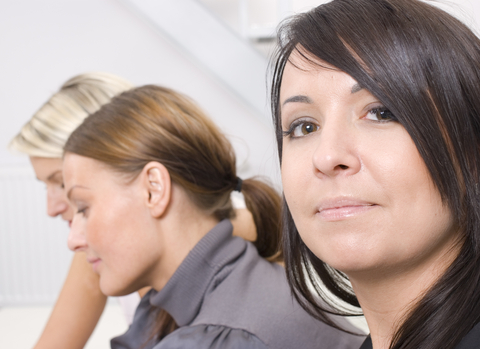Drug Rehab
 Finding compassionate drug rehab for women sounds easier than it is, particularly in this age of multiplying options. According to the National Institute on Alcohol Abuse and Alcoholism, many addiction programs (although not all programs) provide some sort of therapy that’s specifically designed to meet the needs of women. A number of programs offer group therapy meetings and communal work, for example. But addiction programs tailored for women often still contain a large amount of male-dominated approaches. This isn’t surprising, considering that most studies on addiction development and treatment have been performed on men. Given this basic fact, it isn’t unusual for woman addicts to find themselves lost amid male-dominated approaches that simply won’t work for them. In order to address this need, The Orchid was first conceived.
Finding compassionate drug rehab for women sounds easier than it is, particularly in this age of multiplying options. According to the National Institute on Alcohol Abuse and Alcoholism, many addiction programs (although not all programs) provide some sort of therapy that’s specifically designed to meet the needs of women. A number of programs offer group therapy meetings and communal work, for example. But addiction programs tailored for women often still contain a large amount of male-dominated approaches. This isn’t surprising, considering that most studies on addiction development and treatment have been performed on men. Given this basic fact, it isn’t unusual for woman addicts to find themselves lost amid male-dominated approaches that simply won’t work for them. In order to address this need, The Orchid was first conceived.
Program Basics
The Orchid is a woman-centered, woman-run drug rehabilitation facility designed specifically to treat the needs of women who are ready to face their drug addiction. The facility provides a variety of therapies, groups, and holistic treatments so that every woman who comes to stay will enjoy a completely unique and individualized drug addiction rehabilitation program. This customization is important, as no two addictions are the same. Neither are two addicts. In order to reach through and really address an addiction, the treatment simply must be customized based on each woman’s experiences and personal preferences. This customization begins with the very first appointment at The Orchid, where women are asked to describe their addictions, their previous experiences with rehab facilities and their family histories of addiction. Women are also provided with physical and mental health tests, to ensure that no hidden problems are left in place. Then, a formal treatment plan is drawn up, and the women have an opportunity to weigh in on the treatments they do and do not want.
This treatment program isn’t carved in stone. In fact, The Orchid also allows women to update their treatment plans as their needs change. When women meet with therapists, they are provided with the opportunity to update and change treatment plans to include new therapies such as:
New Therapies
- Bodywork
- Yoga
- Meditation
- Support groups
Therapists want to ensure that women have all of the tools available in order to beat back their addictions, and women are encouraged to speak up if they think a specific type of treatment or care might be best for them.
How Is The Orchid Different?
The Orchid works hard to ensure that therapists know about, and understand, the needs of women in recovery. A therapist has a key role to play in an addicted woman’s recovery process, and it’s simply vital that the therapist knows how to communicate effectively with women using methods that women tend to find helpful. According to the Substance Abuse and Mental Health Services Administration (SAMHSA), women tend to appreciate therapeutic alliances that seem collaborative, rather than relationships that are based on lecturing. In addition, when asked what they found most important in a therapeutic relationship, SAMHSA reports, women mentioned trust and warmth, while men reported a preference for a pragmatic problem-solving approach. Understanding this difference is vital, and counselors at The Orchid have a firm grasp on the preferences of women. They work hard to allow women to speak at length, and they build up trusting relationships so women feel comfortable participating in the therapy sessions. It’s a transformative way to provide addiction care.
Recovering from an addiction means more than participating in talk sessions with a therapist, however. In fact, some people find that they receive the most help from other people they meet and talk to in their addiction treatment programs. In order to facilitate this healing, The Orchid takes pains to create communities of trust among its female clients. Instead of treating group therapy as a necessary evil, The Orchid encourages clients to forge lasting bonds with one another through narrative therapy, in-depth storytelling and true relational growth. These therapies are in line with the way women tend to think, and the way they tend to relate to one another. By creating tight bonds, and fostering a culture of support, women feel safe enough to talk and to heal. The Orchid has created a suite of therapies that harness and integrate the uncommon power of women working in concert. Much of the program’s design is based on the groundbreaking work of Dr. Karen Dodge, the therapist who has conducted multiple studies on addiction in women.
 Although the dynamics aren’t entirely dissimilar from those of men, female addictions tend to gain power in greater proportion from unique psychosocial issues. Many women, for instance, suffer from poor self-concept and post-traumatic stress, which are major breeding grounds for abusive behaviors. For example, a study in the Journal of Traumatic Stress found that of 105 women in treatment for addiction, 59 percent had symptoms consistent with post-traumatic stress disorder (PTSD), and among those with PTSD, 97 percent reported one or more incidents of violent trauma. For women, violence can lead to feelings of fear and blame, and in order to numb the pain, women may turn to drugs and alcohol. The substances allow the women to forget their troubles, at least for a time, but the issues are always lying beneath the surface, waiting to break free once more. The Orchid works hard to help women to unravel these conflicting problems, and learn to heal. Instead of repressing pain, women will learn to overcome it.
Although the dynamics aren’t entirely dissimilar from those of men, female addictions tend to gain power in greater proportion from unique psychosocial issues. Many women, for instance, suffer from poor self-concept and post-traumatic stress, which are major breeding grounds for abusive behaviors. For example, a study in the Journal of Traumatic Stress found that of 105 women in treatment for addiction, 59 percent had symptoms consistent with post-traumatic stress disorder (PTSD), and among those with PTSD, 97 percent reported one or more incidents of violent trauma. For women, violence can lead to feelings of fear and blame, and in order to numb the pain, women may turn to drugs and alcohol. The substances allow the women to forget their troubles, at least for a time, but the issues are always lying beneath the surface, waiting to break free once more. The Orchid works hard to help women to unravel these conflicting problems, and learn to heal. Instead of repressing pain, women will learn to overcome it.
Issues of mental health, pain and loss are given an intense amount of attention at The Orchid. In fact, these issues are given far greater dedication and attention than commonly found in other programs. With up to 36 hours of therapy a week and plenty of certified therapists on staff, The Orchid offers each woman an unusual combination of communal strength and individual care. A variety of tools are used in this battle. For example, a typical day here might begin with meditation and then move on to yoga, trauma group, and relapse prevention, before ending with a community evening at the residence. The experience is customized, and it can be quite helpful.
Dual Diagnosis Treatment at The Orchid
A significant way we supplement these eclectic approaches is by including dual diagnosis treatment. Women who have a dual diagnosis have an addiction issue as well as some other mental health issue. As mentioned, some women develop addictions due to abuse and subsequent PTSD, but other women develop substance abuse disorders due to other mental health concerns, such as:
Mental Health Concerns
- Depression
- Anxiety
- Bipolar disorder
- Borderline personality disorder
Women in particular are prone to depression. For example, a study in the journal Acta Psychiatrica Scandinavia found that up to 4 percent of men could have clinical depression, but the rate among women is 8 percent. It’s unclear why women would have depression rates double that of men, but it’s possible that changing hormones play a role. It’s also possible that the powerlessness of women in some portions of society could lead to dark thoughts and then depression. Women in the throes of a depression might turn to drugs or alcohol for the momentary boost of good feelings these substances can provide. Unfortunately, when these drugs wear off, women are often left in a deeper state of depression than they felt before they used substances in the first place.
Leaving such issues unchecked can easily derail the most energized attempts at recovery, yet so few facilities are brave enough to tackle psychological disorders until after drug addiction treatment has been completed. In fact, it was once commonly assumed that treatment for a mental health issue should never occur until the addiction treatment process was well underway. Therapists hoped that the mental illness was somehow secondary to the addiction, and that by treating the addiction, the mental illness would magically disappear. Unfortunately, that is rarely the case. Treating just one issue, while leaving the other intact, could lead to a worsening of the person’s addiction, or the person’s mental illness. It’s remarkable that so few facilities integrate treatment in this manner, considering that studies suggest that about 50 percent of people with mental illness have a substance abuse disorder. However, many facilities persist in keeping the two issues separate.
Free. Easy. Confidential.
Call Today: 1-800-469-9124
Who Answers?We have caring admissions counselors available 24/7
The Orchid is different. The facility provides treatments that are designed to help women understand both their mental health issues, as well as their addiction issues. Therapy sessions for dual diagnosis patients tend to move at a slower pace, allowing these women time to absorb all of the lessons they’ll need to keep both of these conditions in check. It’s part of the holistic approach that is widely used at The Orchid: By examining the addiction issue from all angles and attempting to determine how it came to be and what might cause a relapse, therapists hope to provide real help to these women who so desperately need it. The holistic approach to drug rehabilitation means that every therapeutic program offered speaks to multiple facets of addiction and dual diagnosis disorders.
The Orchid: Find Your Future
 There are too few outstanding options for women’s health and addiction recovery out there. Women, more than men, draw strength, support, and affirmation from their fellow women, and effective professional environments only amplify this effect. Addiction treatment professionals refer to the phenomenon as “affiliation,” and it’s an important part of the addiction treatment puzzle. People who feel an affiliation with others in their treatment programs, and who feel as though they are supported by and can support others in their treatment programs, are more likely to participate in treatment and stay involved for long periods of time. For example, a study in the Journal of Substance Abuse Treatment found that people who believed in the concepts of Alcoholics Anonymous, and who accepted the teachings eagerly, were more likely to attend meetings and stay sober than people who did not feel comfortable with some aspects of AA teaching.
There are too few outstanding options for women’s health and addiction recovery out there. Women, more than men, draw strength, support, and affirmation from their fellow women, and effective professional environments only amplify this effect. Addiction treatment professionals refer to the phenomenon as “affiliation,” and it’s an important part of the addiction treatment puzzle. People who feel an affiliation with others in their treatment programs, and who feel as though they are supported by and can support others in their treatment programs, are more likely to participate in treatment and stay involved for long periods of time. For example, a study in the Journal of Substance Abuse Treatment found that people who believed in the concepts of Alcoholics Anonymous, and who accepted the teachings eagerly, were more likely to attend meetings and stay sober than people who did not feel comfortable with some aspects of AA teaching.
Programs that reach out to women and help them feel comfortable, or help them become affiliated, in other words, might be more likely to deliver long-term success in ways that other facilities cannot.
It might go without saying that The Orchid provides care only for women. This aspect might be of particular benefit to women, however, so it is worth mentioning. Unlike other programs that might provide “add on” solutions for women in a program that has been developed for men, The Orchid provides women-only care in a women-only environment. Some studies have suggested that providing care in this sort of specific environment is more effective than providing care in a mixed environment. For example, a study in the Journal of Drug and Alcohol Dependence found that women in women-only programs tended to have more severe problems than women in mixed environments, and they were able to utilize more treatment services in the programs they used. Women in the women-only programs also had better drug and legal outcomes, when compared to women in mixed programs. It’s clear that, for many women, being in a women-only environment can provide remarkable assistance that’s hard to find in a mixed program.
Call The Orchid Today
The Orchid evolved as a much-needed response to recovery approaches that focused almost exclusively on the psychology of men, approaches that encouraged hard manual labor and forced deprivation as a matter of course. What you get here is something entirely different: a sanctuary of respite and healing where compassion is combined with rigorous professional care.
Please don’t hesitate to contact the experts at The Orchid by calling toll free at 1-888-672-4435 if you have any remaining questions. Often, a single phone conversation is all you need to get started on an essential and affirming course of recovery. With a little patience and the desire to heal, you may quickly discover why hundreds of alumni continue to maintain the relationships they forge here for years into the future.
You can also follow The Orchid on Facebook and Twitter to stay current on everything we’re doing on a daily basis.
Further Reading- 5 Drug Rehab Myths
- 5 Tips to Avoid Relapse After Drug Rehab
- Affordable Drug Rehabilitation Programs
- Drug Rehab and Pregnancy
- Drug Rehab Costs
- Drug Rehab FAQ
- Drug Rehab for Chronic Relapsers
- Drug Rehab for Single Mothers
- Drug Rehab in Florida
- Florida Drug Rehabs: What You Need to Know
- Gender Specific Drug Rehabilitation
- Life After Drug Rehab
- Palm Beach Drug Rehab Centers
- Teen Drug Rehab Centers
- The Importance of Drug Rehab for Women
- Using Insurance For Drug Rehab
